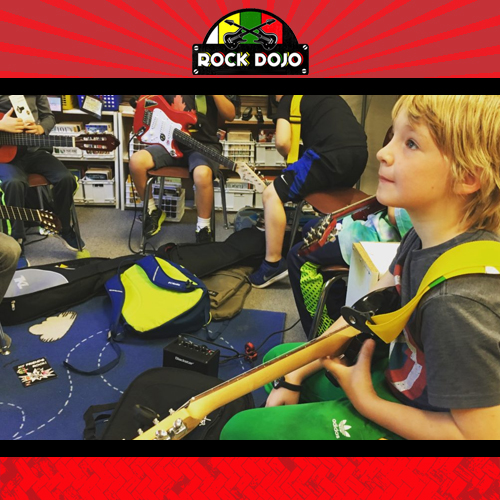If you read The 4 Greatest Challenges Facing Guitar Teachers, you know the music education industry is rapidly changing.
Guitar sales are slumping, online learning platforms like YouTube are becoming better organized, and traditional guitar lessons are competing with more after-school activities than ever.
To make matters worse, too many guitarists invested far too much of their time, energy, and focus on the dirt—the everyday expertise of playing the guitar, and not enough time looking up at the clouds—the reason why we play the guitar in the first place.
In the coming years, independent guitar teachers who fail to adapt to these changes will be out of business, but I believe in the value guitar teachers provide to their students and to their communities.
That’s why I put together a list of three simple steps to help you increase your impact and grow your guitar teaching studio for years to come.

1. Communicate the Value of Guitar Lessons
According to Simon Sinek, author of Start with Why, “People don’t buy what you do. They buy why you do it.” As guitar teachers, we need to do a better job of communicating the value of guitar lessons. Personally, I believe the guitar can save the world because it teaches kids values like leadership, imagination, and creativity!
Those are precisely the values we need to communicate to our clients, our students, and our community as the music education industry continues to evolve.
2. Cultivate Communities with Group Guitar Lessons
Our biggest competition isn’t YouTube, it’s a hundred other activities like soccer, basketball, and video games competing for the limited time and attention span of our students. If we want to save the guitar, we’ll need to focus on the values that make sports and online gaming so popular: community and fun!
That’s why group guitar lessons are so powerful. Kids learn, grow, and play the guitar with their friends. When it gets challenging, they can rely on the community to support and encourage them in their journey towards learning to play the guitar.
Teach Kids Success Skills as They Learn to Play Guitar
At the end of the day, most parents don’t care how many songs their kids can play on the guitar or whether or not their children can improvise over a 12-bar blues because music isn’t what parents value most for their children.
On the other hand, every parent wants their child to acquire the skillset he/she needs to be successful.
That’s why guitar lessons are so critical to a child’s education. Learning to play the guitar is a monumental challenge. It requires vision, focus, and grit, and it cultivates the same “drip by drip” mindset that separates the people who actually change the world from the people who dream about changing the world.
ABOUT THE AUTHOR: Brian Parham is the founder of the Rock Dojo in Portland, Oregon, where he teaches hundreds of kids between the ages of 6 and 12 years-old to play, perform, and compose their own original music on the guitar in after-school group guitar lessons. He’s also the author of three guitar method books including Guitar for Kids: Rock Dojo The Complete Belt System.


